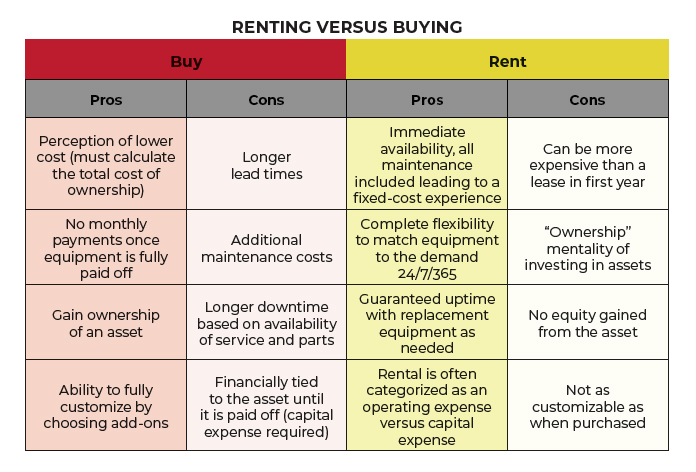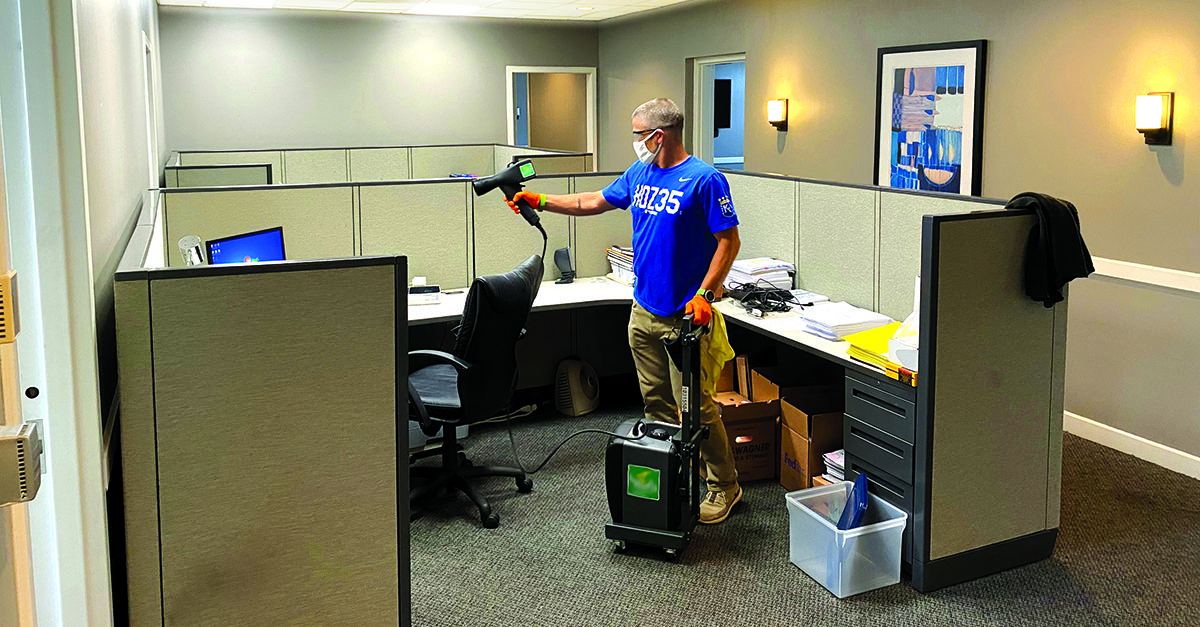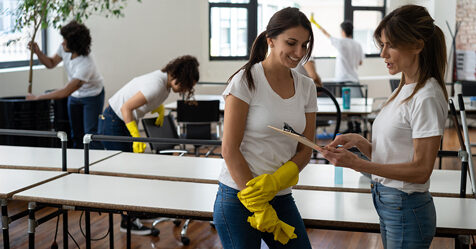Before the onset of the coronavirus pandemic, most building service contractors (BSC) preferred to buy rather than rent their cleaning equipment, according to CMM’s 2019 BSC Benchmarking Survey, which showed nearly 52% of respondents purchased their equipment outright. Nearly 82% of respondents reported owning their equipment. However, this ownership preference might be changing with the current times. Adam Camhi, director, Flooring Solutions at Sunbelt Rentals, said the rental equipment company is experiencing an upswing in business during the pandemic as BSCs and in-house service providers adapt to more frequent and comprehensive cleaning services.
Camhi has been an integral part of creating and establishing the Flooring Solutions business at Sunbelt Rentals, which is aimed at helping customers adapt to growing and changing demands in the janitorial and surface prep industries. Under his leadership, the business has rapidly grown to more than 45 locations throughout North America. CMM recently interviewed Camhi about new trends in the rental market and best practices for renting cleaning equipment.
What are some trends you’ve seen in the cleaning and maintenance equipment rental market during the COVID-19 pandemic?
Camhi: We have seen rental demand increase during this pandemic. COVID-19 has created uncertainty for individuals and businesses alike, which is an environment where rental can fill a need. With the current economic volatility, many businesses are forced to maintain operations while putting a heightened focus on cleaning and disinfecting as they simultaneously experience capital expense limitations. Rental has always been a preeminent choice for shorter term projects when equipment acquisition cost was not justifiable. However, we are now seeing an increase in longer term rentals on lower cost items—such as electrostatic sprayers—stimulated by the uncertainty of the markets.
Historically, we have focused on the floors at facilities; however, with the pandemic we have seen a surge in the need for the full deep cleaning of facilities with an emphasis on high-touch areas. This has led to an increased demand for electrostatic sprayers, touchless cleaning systems, indoor air quality equipment, and autonomous cleaning equipment.
Autonomous mobile robotic (AMR) cleaning equipment has generated a lot of interest. Companies are able to maximize labor efficiencies by having autonomous equipment clean the floors while allowing team members to focus on other important tasks, such as detail cleaning and disinfecting of high-touch areas, inventory restocking, and order fulfillment. With the advanced technology and software available on this equipment, autonomous floor cleaning machines are able to clean during business hours, providing consistent and visible cleaning for team members and consumers to feel more comfortable while they navigate facilities.
What is the difference between renting and leasing? When is it best to rent, and when is it best to lease?
Camhi: Lease options are typically set up in 36-month or 60-month terms. The customer takes ownership of the equipment and is therefore financially tied to the equipment for that term. These terms are included in a customer’s financial balance sheet through capital expense.
In a rental program, customers have complete flexibility to have their equipment fleet match their business demands and are only financially tied to the equipment when they need it. Unlike leases, rental expenditures are typically pulled from an operating budget. Most quality rental operations cover the routine maintenance and have immediate backup plans for service and downtime issues.
The landscape for when it is best to rent versus lease has changed in recent years and is becoming more site specific. If an organization is equipped to manage the asset—the total cost of ownership to include preventative and routine maintenance and unexpected service needs—coupled with the downtime, then lease options make sense. On the other hand, if factors are uncertain, such as a BSC operating on a contract in which the scope of work may suddenly change; equipment being deemed essential 24/7/365; or, inversely, if equipment is needed sporadically for project work, a rental program is beneficial.
What are some key questions to ask when renting equipment from rental providers?
Camhi:
- What is the make and model of the equipment you are providing?
- What model year is the equipment you are providing? (Some rental providers will offer older refurbished equipment, which has older technology and is more prone to breakdown.)
- How often will you be on site to perform preventative maintenance on the equipment?
- In a case where there is a breakdown, how quickly will we have our equipment in working order?
- Do you offer replacements in instances when the equipment will be down longer than 24 hours?
- Do you offer remote digital tracking of hours and location on your equipment?
- How close is your location to the site where the equipment will be needed?
- Do you offer operator training, if required?
- Can you offer on-site consultation to assist with the project?
What are some common mistakes when renting or leasing equipment and tips on how to avoid them?
Camhi: One of the biggest mistakes is trying to save money upfront by going with an inferior product. Do your research and make sure you are getting the best product for your operation. Ask around to ensure the product is tested in the marketplace with proven results. The equipment you use represents your brand to your team members and customers alike.
Equipment will need service, so understand the service range and turnaround time of the company you are working with.
When dealing with cleaning equipment such as mechanized sweepers and scrubbers, go with high-quality brushes and squeegees, if applicable. A high-quality machine with a low-quality brush will not perform to full capacity.
Calculate the potential accounting impact when making the decision. With the new General Accepted Account Principles (GAAP) regulations on leasing, causing all leases to be treated as a finance lease and therefore recorded as such, we recommend you consult with an accountant to understand how the decision will impact your balance sheet.
What can the cleaning industry expect from the rental equipment market as the country moves through re-entry and beyond the pandemic?
Camhi: The cleaning industry should expect availability, reliability, and ease when renting equipment—now and during “business as usual.”
The foundation of the cleaning industry is built on people, chemistry, and products/equipment. Cleaning professionals around the world have stepped up as essential workers on the front lines to help keep facilities cleaner and safer. Rental industry professionals are here to help support them, providing immediate availability of the solutions they need—with proper training—to ensure the project is completed safely and correctly 24/7/365.




